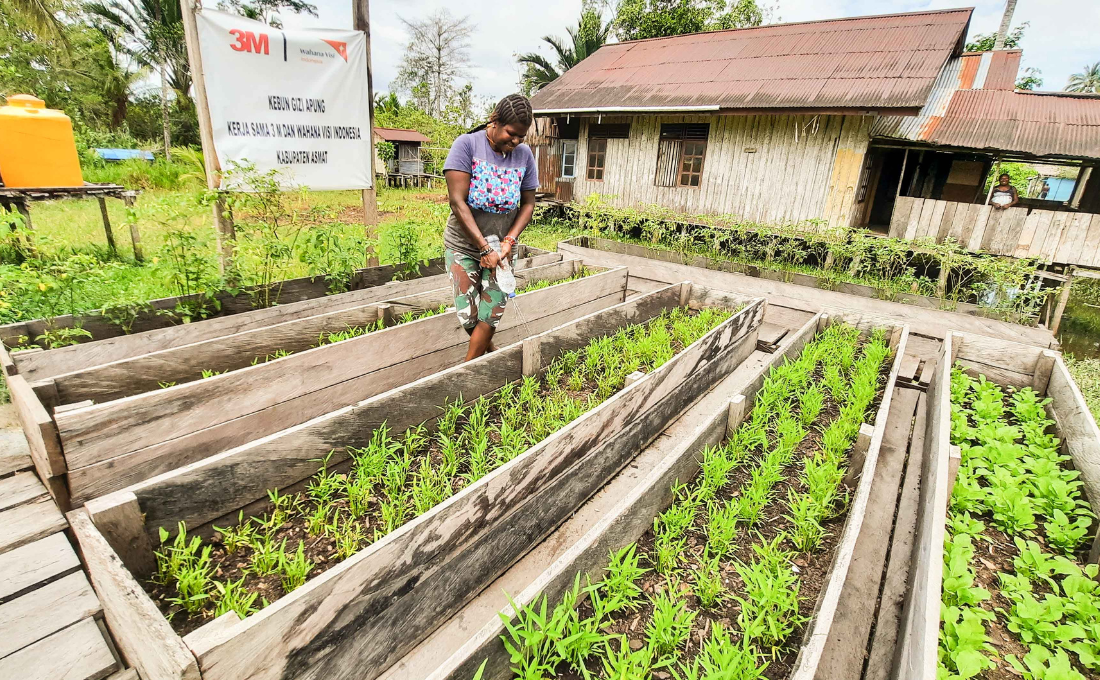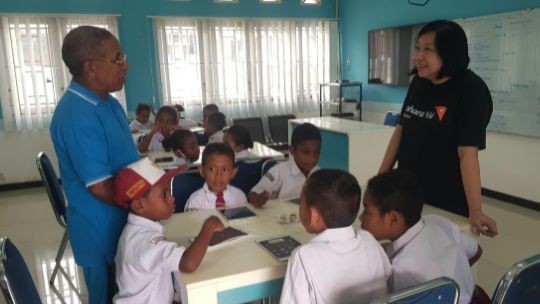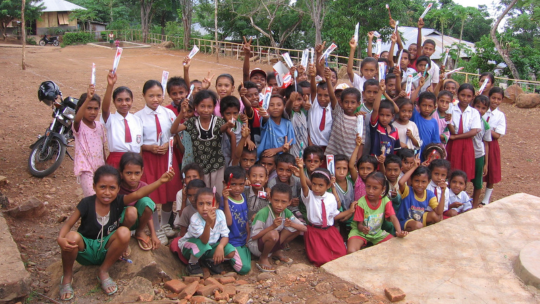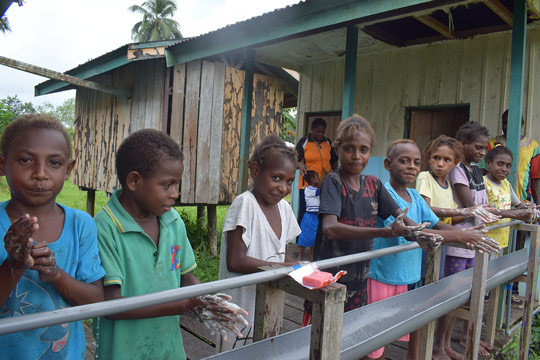Nutrition Garden for My Children

Mama Isabela is a housewife who joined a farmer group in one of WVI's assisted villages. Every day, Mama Isabela takes care of the nutrition garden with great enthusiasm because she feels that the nutrition garden has a good impact on her children and family.
"Before the nutrition garden, we rarely planted vegetables. We used to go to befak and look for vegetables in the forest or our garden in befak. We usually just took sago shoots and cassava leaves," said the mother of one child. After WVI arrived in her village in Asmat, Mama Isabela and other communities were introduced to nutrition gardens. Before starting to plant, the community received training in nurturing the vegetables to be planted. The community also received support for vegetable seeds.
In 2019, the nutrition garden initially utilized the area around the community's yard. The homeowners made beds from piles of soil around the house. However, it turned out that this method was not suitable for the natural conditions in Asmat. The houses where people live are in the middle of swamps that often experience high tides. So that the beds will be submerged in water from the river and make the seeds not develop properly. "At first we planted in the beds but the seedlings usually rotted, there were also seedlings that were washed away by the big water," said Mama Isabela.
Instead of giving up, the community together with WVI and supported by 3M looked for ways to prevent the nutrition garden from being washed away by the tide. Adapting to nature, the idea of a floating nutrition garden emerged. Beds that were previously just piles of soil were replaced with beds fenced by woods to protect the plants from the tide. Mama Isabela said, "After the floating garden, we can always eat vegetables and fulfill the nutritional needs of our children and family".
For Mama Isabela, the floating garden is a great innovation. It makes it easier for her to plant and harvest vegetables. She remains faithful to maintaining her garden even though there are also people who are not diligent in farming and prefer to go to befak so that the beds that have been made are abandoned.
"Many group members do not participate in planting the seeds that have been given. But for me, planting in the floating garden makes it easy to eat vegetables. My child likes to eat vegetables and if there are leftover vegetables we also usually sell them to others. Because of this nutrition garden, we as a family can eat various vegetables every day," said Mama Isabela.
Mama Isabela is one of the most active members of her group. Mama Isabela always replants when the vegetables are harvested. This amazing mother is also planning to build a new bed but is still looking for a suitable place and a location that is a bit high so that it is protected from the tide.
Writer: Alfred Dadi (Field Facilitator in WVI operational office in Asmat, Papua)
Editor: Mariana Kurniawati (Communication Executive)



